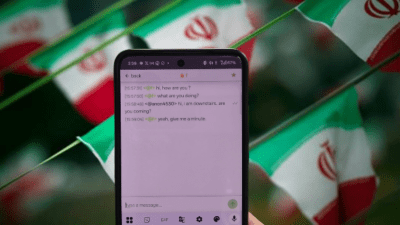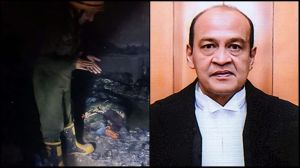The Vajpayee doctrine
The Prime Minister's move to have I.K. Gujral head the Parliament's standing committee on foreign affairs is a welcome sign that he is anxio...

The Prime Minister8217;s move to have I.K. Gujral head the Parliament8217;s standing committee on foreign affairs is a welcome sign that he is anxious to take the opposition and the country along on his government8217;s policies. Indeed it involves applying Gujral8217;s famous doctrine of conciliation towards neighbours to the government8217;s dealings with the opposition. There have been noises from the opposition that it was not taken into confidence in the matter of nuclear tests.
That is unreasonable but understandable. The need for secrecy was such that only a half dozen men even in the government knew about them. Politically the action was such a master stroke that it caught the opposition completely flat-footed. No opposition party could have opposed it without becoming unpatriotic in the nation8217;s eyes. So the political resentment of these parties at having been so outmanoeuvred comes out in other forms.
And yet there is a greater need than ever now for maximum engagement between government and opposition. Thepolitical establishment needs to close ranks against international censure and sanctions. That will not happen in a vacuum. It is up to the government to be large-hearted in its own and the nation8217;s interest. Vajpayee8217;s recent speeches and gestures are an indication that he sees the need to build a political and national consensus. The days after the tests were marked by much sharp talk with foreign governments, either to press home the advantage India had won in strategic terms or to milk nationalist sentiment or plainly to tell aggressive neighbours that India would stop at nothing to guarantee its security.
There is now good reason for toning down these postures. Vajpayee has attempted just that by stressing that he wants peaceful relations with China and, in an interview to Germany8217;s Der Spiegel, that a prosperous and stable Pakistan is in India8217;s interest. He seeks now to extend that approach to dealings with political parties at home.
Appointing Gujral sends out the right signals on many scores. Notonly is it an assurance to the opposition that its views on foreign policy matter. It also suggests the government would convince the opposition that India will not be needlessly hawkish in its international relationships. Gujral had written to the Prime Minister only a few days ago expressing concern about the strident positions being taken vis-a-vis countries in the region.
The Gujral doctrine, much as it was acclaimed, was criticised by those who felt it pushed India into talking to tough neighbours from a soft position which would be seen as weakness. Whatever else may be said about the BJP government, certainly no one could make this claim about it. A policy of foreign-policy conciliation has a far better prospect of working in its hands than it did in the hands of its creator. The emerging Vajpayee doctrine, if sufficiently developed and consistently applied, could yield a very happy mix in Indian foreign policy a tough government meeting halfway efforts at improving troubled bilateral relations,without having to look over its shoulder at domestic censure. Essential of course is a cooperative opposition. Vajpayee should stay the course.
- 01
- 02
- 03
- 04
- 05































